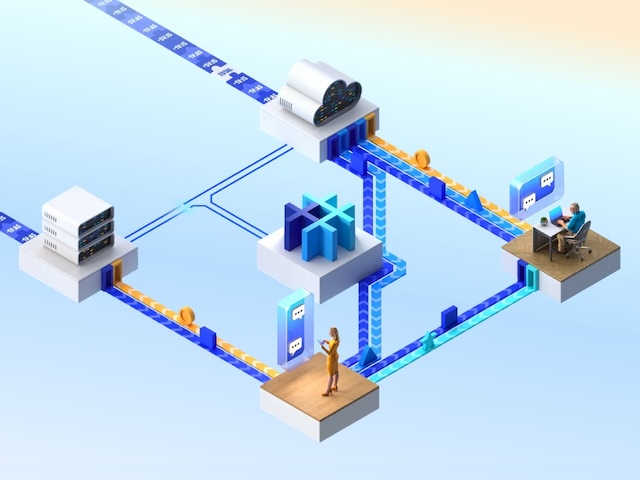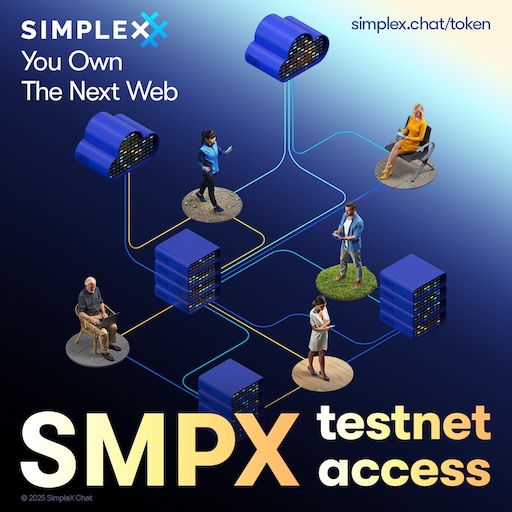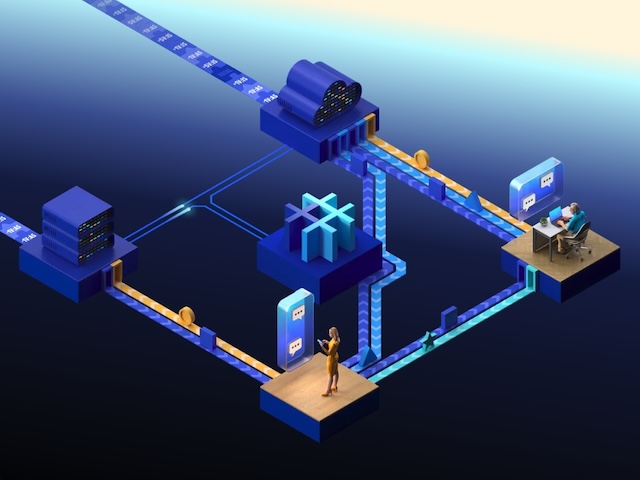SimpleX Community Vouchers: Strategy & Vision
SimpleX is a private and secure messaging network where you own your identity, contacts, groups, and content — there are no ads, no tracking, and no central authority. It relies on open protocols and open-source code, enabling anyone to audit the code and to create alternative apps and servers.
To scale for large groups and channels, without relying on any single entity, SimpleX network needs a sustainable way to fund servers.
Community Vouchers offer the solution - they are prepaid infrastructure credits for servers used by groups and channels.
These vouchers are not tradable tokens or speculative assets — there will be no pre-sale or emission. It's a method to pay directly for the network infrastructure while maintaining privacy.
For early access to test vouchers, if you're familiar with cryptocurrencies, get a free access pass to the test version — a free non-transferrable NFT on Ethereum mainnet, you only need to pay for gas.
Why Community Vouchers?
To pay for network infrastructure securely and privately.
With "free" centralized platforms:
- you lose security and privacy, because your data is used for advertising and sold.
- they de-platform inconvenient users, often based on frivolous complaints.
- you don't own all rights to your content.
Paying for server capacity may be cheaper than "free" platforms.
How Will It Work?
In short:

-
Buy Community Vouchers. Initially you would pay with a stablecoin (USDT/USDC). The goal to allow using other popular cryptocurrencies (BTC/ETH/XMR) and also in-app payments - to make direct usage of blockchain optional for the end users.
-
Funds are locked in an autonomous smart contract not controlled by SimpleX Chat company or by anybody else.
-
Assign the Community Voucher to a group or channel you want, using it's public address. This assignment is private, and group owners or server operators won't be able to link it to the purchase, thanks to zero-knowledge proofs.
-
Group or channel owners redeem the Vouchers to the server operators they use. The redemption is also private, and not linkable to the assignment or purchase.
-
Server operators receive up to 70% of the unlocked funds, with the rest being allocated to network development and governance.
Why Blockchain?
It's the only way to make SimpleX network truly decentralized and secure:
-
Group and user names resistant to man-in-the-middle attacks.
-
Public registry of network operators, with their trust scores.
-
Private and secure payments based on zero-knowledge proofs in smart-contracts.
We are currently evaluating several popular blockchains that have strong support for zero-knowledge proofs - technology that support private operations on public blockchains.
Timeline & How to Get Involved
2025:
- evaluating blockchains,
- drafting Community Vouchers whitepaper about system and cryptography design for Community Vouchers.
- development of large group and communities.
We welcome your feedback on this proposal and any in-progress design documents.
2026:
- launch support for large groups and channels.
- test version of Community Vouchers.
- SimpleX network namespace v1.
Join in:
- Get a free NFT for early testing.
- Create a small group or channel using today's tech, and get it added to our experimental directory of groups.
- Talk to us if you want to be a server operator to earn revenue and about any partnerships.
Community Vouchers FAQ
Will self-hosted servers still work?
Yes! Support for self-hosted servers will be improved, and they can be used together with paid servers, for better reliability and censorship-resistance.
Why not just use existing cryptocurrency?
Cryptocurrencies are:
- Speculative and volatile.
- Regulated as financial transactions.
- BTC and XMR blockchains do not support smart contract logic, e.g. for locked funds.
How can it be private on a public blockchain?
High level of privacy is achieved by new address per purchase, proxied access to blockchain, and zero-knowledge proofs that make payment and usage unlinkable.
Can I sell or transfer vouchers?
No, Community Vouchers cannot be sold or transferred. Once purchased and assigned to a group or channel, they can only be redeemed to server operators. They will expire in 12 months if not redeemed, with the funds released to network development and governance.
Free messaging limits?
Private chats and small groups remain free within fair use (up to 128 undelivered messages per contact, with up to 21 days storage, up to 1GB files stored for 2 days). Community Vouchers will be used to pay for large groups infrastructure and for memorable public names.
Who controls the smart contracts?
We will control them during testing. Once released for general access, the contracts that accept and hold funds will be autonomous and immutable.
How is revenue share of server operators determined?
Server operators will receive up to 70% of the infrastructure payments. A higher share will be allocated for:
- identified operators, because knowing who runs the servers achieves better user privacy and security,
- more reliable servers,
- servers that operated for a longer time.
What is technology design?
The conceptual design for Community Vouchers uses zero-knowledge proofs, making the purchase, assigning vouchers to groups and their redemptions unlinkable.
A whitepaper will be published in February 2026.
Disclaimer
This design is evolving — please share your feedback.
This is not an investment offer. All details are subject to legal review.





